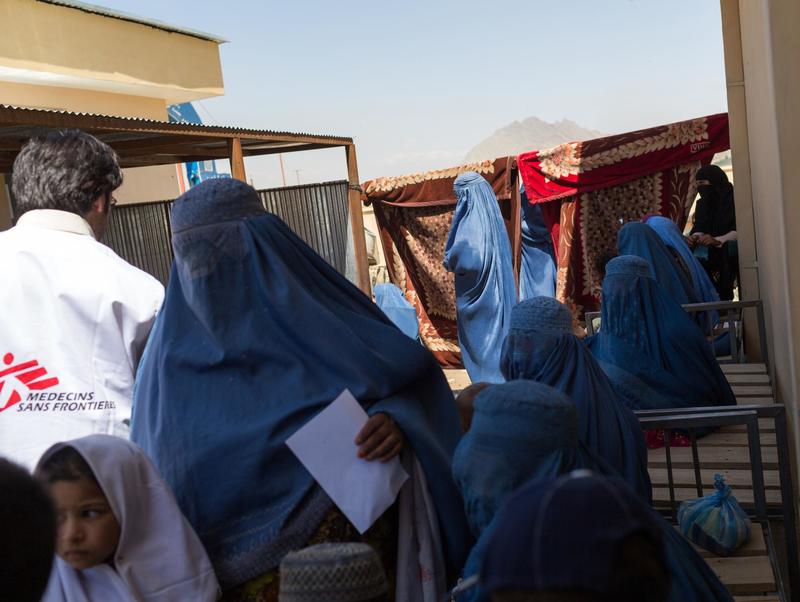By Jonathan Whittall
Head of humanitarian analysis for Médecins Sans Frontières/Doctors Without Borders (MSF), based in Beirut
Twitter: @offyourrecord
In January 2014, Scarlett Johansson decided to endorse SodaStream – a product that makes bubbles in your soft drinks. Still water apparently becomes fizzy water at the push of a button. Johansson seems to have a thing for water. She also endorses – or acts as an ‘ambassador’ - for Oxfam, an organisation that used to be well known for its provision of clean water in humanitarian emergencies.
A scandal erupted when it was discovered that Johansson seemed to have little problem with the fact that SodaStream benefits from Israeli occupation of the West Bank. Suddenly Oxfam was thrust into the spotlight not for its humanitarian provision of water, but rather due to an association with a product that makes water fizzy. The ‘brand ambassador’ gimmick backfired.
Irreconcilable differences
However, while the Johansson scandal gained much media attention – the problem of someone representing two seemingly incompatible interests – fizzy water made by a company benefiting from occupation on the one hand and on the other an organisation delivering clean water independently – is not unique. Johansson and Oxfam admitted that their differences were ‘irreconcilable’.
This should be advice for other odd-couples, not only in the occupied Palestinian territories.
Most humanitarian organisations have similarly irreconcilable bedfellows by aligning themselves with donor governments. In Afghanistan for example, the US government is an occupying force with 34,000 troops currently on the ground

Two-sided coin
The military conducts ‘stabilisation operations’ - something previously known by its more understandable term, ‘war’ – while at the same time funds humanitarian aid to areas in order to ‘hold and build’ (known to us non military insiders as, ‘buying support’).
Humanitarian organisations have followed the money and have become integrated into this state building agenda. The fizzy water of war and the clean water of ‘humanitarian’ organisations are very often two sides of the same coin.
What was interesting in the media reports around Oxfam’s handling of the Johansson scandal were allegations that there was a split in the organisation between those who wanted to ditch Johansson and those – primarily in the US – who didn’t want to upset their donors who, one presumes, are pro-Israel.
Strings attached
Similar concerns exist among the western based humanitarian community about how to manage the fact that donor money received from governments such as the US come with prominent political strings attached.
Turning down such funding – something that an organisation like MSF has decided to do for many years – can have catastrophic financial implications for organisations that do not have a popular support base of individual private donors.
The Johansson-SodaStream saga might have caught the attention of the media, but it is not a new scandal. Johansson donated her fame to Oxfam, governments donate their money. Both Johansson and donor governments come with varying degrees of political baggage that undermine humanitarian independence.
Independence
The difference between Johansson and donor governments is that Johansson wasn’t using Oxfam to promote her support to occupation. The real outcry should therefore be about the broader agendas organisations like Oxfam serve by unquestioningly accepting their donor priorities of state building in contexts such as Afghanistan, Mali, Iraq and many more.
Humanitarians should stick to saving lives independently from governments who are by the nature of their very existence, not humanitarian. Oxfam should stick to clean water, and leave the bubbles to those with different agendas.
Scarlett Johansson can remain the poster child of our outrage at organisations who are unwilling to cut ties with agendas that go against core humanitarian ideals – but we shouldn’t let the less catchy and non-headline grabbing associations between humanitarian actors and governments go unnoticed.


